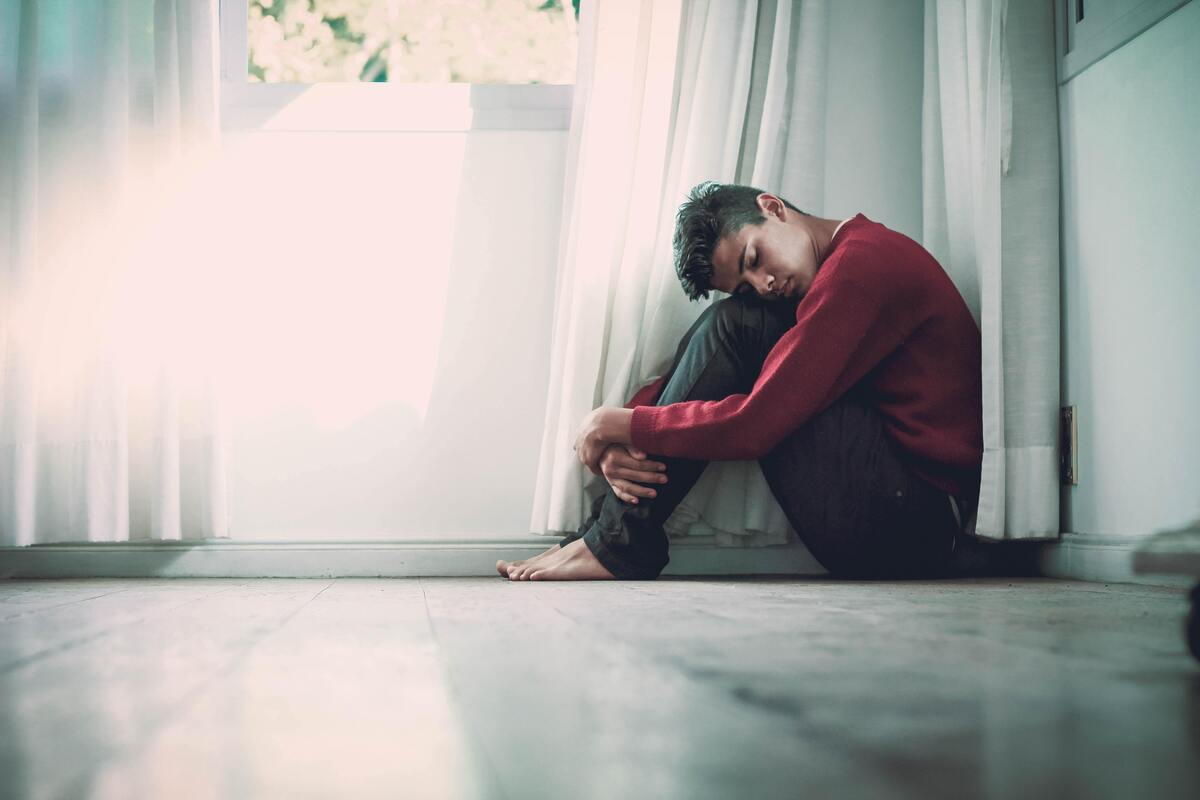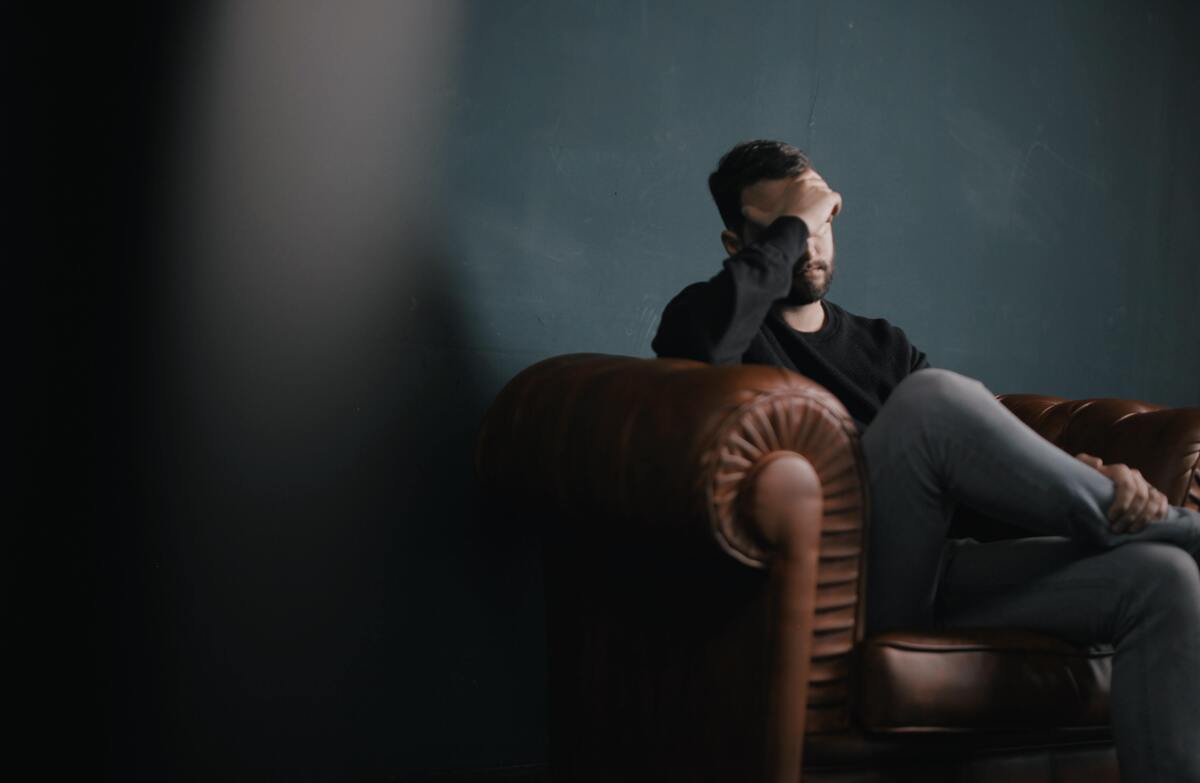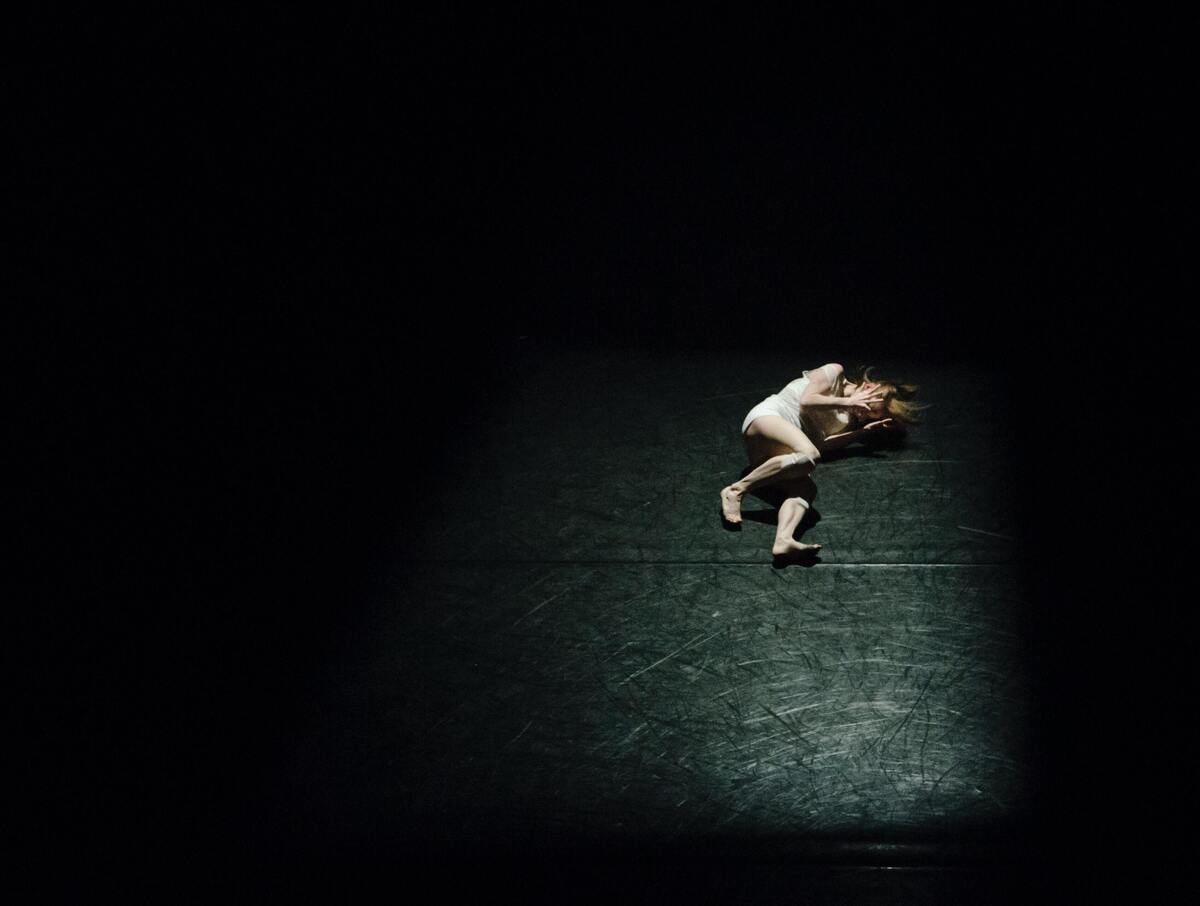Table of contents
What is anxiety crisis?

An anxiety attack causes people to have a strong sense of anxiety, nervousness and insecurity. They feel as if something very bad and out of control could happen at any time. People usually get into an anxiety attack because of stressful situations, such as an exam, a presentation or the loss of a loved one, for example.
The symptoms experienced by those who go through an anxiety crisis are: increased heartbeat, tingling in the body, feeling of lightness in the head, among others. One way to try to minimize anxiety is to take a moment of slow breathing, closing your eyes. This will help normalize the heartbeat and calm your breathing.
In today's article you will discover some information about anxiety crisis such as the symptoms that show an anxiety crisis is occurring, what causes the crisis, how to deal with it, tips on how to help someone going through the problem and some ways to prevent the crises.
Symptoms of anxiety crisis happening

The symptoms of anxiety crisis arise due to an imbalance of the hormone adrenaline circulating in the blood. This fact occurs when people go through some important situation, such as a presentation, for example, but when these symptoms become frequent, this can be a sign of anxiety disorder.
In this part of the article, you will understand some of the symptoms presented by those who are experiencing an anxiety crisis. These symptoms are: extreme and sudden fear, racing heart, nausea, feeling faint, among others.
Extreme and sudden fear
The symptoms presented in an anxiety crisis are quite varied, and sometimes people are slow to realize that they are going through a crisis. One of these symptoms is an extreme fear without explanation or apparent reason.
The fear can be created due to the place where the person is, a current situation or a memory contained internally. It can be uncontrollable referring to a non-existent threat, during the anxiety crisis all feelings and thoughts are extrapolated, causing people to behave differently than normal.
Accelerated heart
Another symptom that can be noticed during an anxiety crisis is an acceleration of the heart rate. This symptom worsens the anxiety picture even more, because it causes the person to become worried and scared.
In addition, people may also experience chest pains, which reinforces the fear of a heart attack. Thus, with the concern of a possible heart attack, people become even more out of control and have the feeling of fear intensified. Tachycardia can also cause pain in other parts of the body, thus worsening the crisis.
Nausea
During an anxiety attack, people can also feel nauseous, including the urge to vomit. Usually the sensation does not come true, but it is a very unpleasant feeling and ends up hindering people's eating habits.
Depending on the intensity of nausea during the crisis, although vomiting does not occur, it can cause stomach discomfort. This symptom can last for long minutes and cause great discomfort.
Feeling faint
In addition to the symptom of nausea, people facing an anxiety attack may also experience the sensation of fainting. Usually people do not actually faint, but they feel the discomfort of having the sensation of losing control of their body.
This sensation is quite intense, and in addition, people may have blurred vision and their knees may go wobbly, making it difficult for them to move. Therefore, when feeling this symptom, it is important to ask for help and find a place to sit down.
Sense of death
People going through an anxiety crisis may also experience a sense of death, which is one of the most frightening symptoms. This feeling is quite cruel, as it causes a terrifying and unexplained fear.
Even though there is no real threat to people's lives, they feel that something could happen at any time and take their lives. In these crises being accompanied by someone sympathetic will be of great help.
Dissociation from the present
Another problem faced by those who go through anxiety crises, is a dissociation of the present, this happens because the sensations felt are extremely bad and can lead to an emotional overload.
This disconnection from the present is related to a cerebral defense mechanism, used when the brain cannot process a real and very bad situation. Besides this feeling of being out of reality, after an anxiety attack, it is possible to have memory lapses.
You feel you are an observer of someone's crisis
In anxiety crisis, people may feel as if they are watching someone else's crisis, without realizing that the crisis is happening to them. It is as if people are watching a scene through someone else's eyes.
After the anxiety crisis, and when presenting this symptom, as in the case of dissociation from reality, people may present memory difficulty, with respect to events that occurred moments before the anxiety crisis.
Disordered thoughts
Disordered thoughts is a very complicated symptom, because it can increase the time of the anxiety crisis. This is because with disorganized thoughts, shuffled, people end up being unable to think logically and can not understand rationally what is happening around.
With this, they are not able to change their bad thoughts, which reinforce the sensations of death or extreme fear. Therefore the anxiety crisis gets worse, which can be quite harmful to people's mental and bodily health.
Causes of anxiety crisis

The causes of anxiety crisis are different for each individual, but in general they are related to stress, emotional upset due to some conflict, among other factors. Therefore, an investigation of each patient is necessary to better understand what intensifies or causes the crisis.
In this part of the article, we will talk about some of the possible causes for anxiety crisis like, psychological traumas, stress situation, genetic factors and personal triggers.
Psychological traumas
Psychological traumas can be the cause of anxiety, depression and even a constant feeling of being sick. All these sensations and problems can be caused by situations or events that caused distress to people at some point in their lives, they are called Post Traumatic Stress.
This psychological disorder, causes excessive fear after experiencing a very shocking, frightening or dangerous situation. Participation in wars, robberies or domestic violence, for example, are some of these situations.
In addition, these psychological traumas can occur after some unexpected change in people's lives, such as the death of someone close, for example. Thus, post-traumatic stress can also be classified as an anxiety disorder caused by exposure to traumatic situations.
Stress situation
The stress situation, besides causing anxiety, is also responsible for a difficulty in communication between the person who is going through the anxiety crisis and the other person. It can cause a more violent, rude and ill-mannered communication.
And stress can either be caused by the anxiety crisis, or it can be responsible for the emergence of the crisis. Stress also causes people to look for justifications, excuses, which prevent the person from seeing the problems experienced.
Genetic factors
There are also genetic factors that lead to problems with anxiety crisis, so if parents have suffered from anxiety disorder, possibly the children will also have the same problem. Thus, the experience of anxiety crisis can be transmitted to all members of a family.
Even knowing that each person has a different level of anxiety, both genes and the way parents and grandparents behave and how they raise children and grandchildren, influence this issue as well. It is believed that most psychological disorders, anxiety is one of them, have genetic and environmental causes.
Although it is known that the weight of genetics is greater, when looking individually, it is possible to realize that there is a variation in this possible pattern. But in general, if people have cases of anxiety among their parents, most likely they will also experience the problem.
Personal Triggers
Personal triggers, or emotional triggers, work as barriers that make it difficult to forget events or even to get rid of beliefs, opinions, and values that are very rigid in people's lives. Thus, those who have experienced situations of suffering in the past do their best to form new memories and create a happier life.
However, when they encounter a person, situation, action, or speech that is reminiscent of a painful past experience, they may have reactions or attitudes that are strange to their normal way of acting. Thus, people end up making rash decisions that harm their well-being, and even lead to stress and mental fatigue.
How to deal with anxiety crisis

With all the symptoms and causes related to anxiety crisis, it is possible to realize that this is a disease that can cause problems to the overall health of people. Therefore, it is important to know the possible ways to deal with the problem.
Below we will talk about various ways to deal with anxiety crisis, learn how to do detachment from the situation causing anxiety, breathing exercises, visualization, acceptance of reality, muscle relaxation, the use of the five senses and analyze thoughts.
Distancing from the situation
Distancing yourself from the situation causing the anxiety crisis is one way of dealing with the crisis, so focusing on the symptoms that are arising will only help to make the problem worse. Thus, it is essential to take the attention away from the symptoms, and focus on some specific activity, such as breathing, for example.
Of course, it is not a simple task to take the focus off the problem, but it is possible to make attempts to perform deep breathing. Another important point is to seek professional help to find possible solutions to anxiety attacks.
Take a deep breath
One of the symptoms experienced during an anxiety crisis is rapid breathing that ends up causing hyperventilation. At this time, it is important to try to do a more conscious breathing, inhaling and exhaling slowly and deeply. With this action, it is possible to reduce stress and provide greater oxygenation to the brain, which also improves concentration.
With this, it is possible to reduce the feeling of suffocation and difficulty breathing, so when you notice an anxiety attack approaching, try to breathe slowly. Placing one hand on your belly and the other on your chest, try to breathe slowly, through the diaphragm. Taking inhalation through the nose, holding the air for 3 seconds and releasing the air through the mouth slowly will bring calmness.
Visualization exercises
Since one of the symptoms is fixation on bad and tragic thoughts, one way to relieve the anxiety crisis, is to get rid of this thought pattern. Visualization exercises are a great way to get the mental pattern improved.
Try to think of a place that transmits peace and relaxation, it can be a landscape, a stream or some place from the past that brought these sensations. Put all your focus on this visualization and add more details to the scene. With this activity it is possible to take your mind out of the negative pattern, calming the breath and disconnecting from the symptoms of anxiety.
Acceptance of reality
An anxiety crisis, especially the first one, is an experience that takes people's senses in a whirlwind. In more severe crises it is quite difficult to keep control of the situation, even if the crisis is repeated, which is likely to happen, one should not get angry or fight against the sensations.
Acceptance of the reality of events is the best attitude, including this can help to momentarily alleviate the crisis. This is because the person understands what is happening, and so can put their focus as best as possible on practices to improve the crisis.
Relaxing the muscles
Often the first reaction of those who go through an anxiety crisis is the contraction of muscles, which is a defense mechanism of the body. However, this will cause greater pain and discomfort, increasing the feeling of anxiety.
Therefore, besides doing exercises to control your breathing, and after this is more normal, try to perform muscle relaxation. Also using the breathing, try to relax the muscles starting with the head, neck and then the points that usually get very tense in this process as the jaw, mouth, neck and shoulders.
Use your five senses
Using the five senses is also a way to minimize the symptoms caused by anxiety crisis. Activating the senses will make the person feel present in the place they are, as well as in the present, in the here and now.
To perform this exercise, try to list 5 things you are seeing, 4 things you can touch with your hands, 3 sounds you are hearing at the moment, 2 smells you are smelling and 1 taste you can feel. These actions will get you in touch with reality and let go of the thoughts and events that led to the anxiety crisis.
Analyze your thoughts
At the moment of an anxiety crisis it is quite common for people to be hit by an avalanche of thoughts, which creates a very high emotional load. With this, there is a release of adrenaline in the body, which leads the nervous system to a state of alertness. To reduce the amount and speed with which thoughts arise, it is possible to perform an analysis of them.
If you are alone, try to count from 1 to 10 countless times, sing a song or recite a poem, do something that eliminates the excess of thoughts.
Tips for helping someone in an anxiety crisis

When a person goes through an anxiety crisis, they may experience feelings such as fear, anxiety and uncertainty. These feelings feed a sense of pessimism, which makes the person think and expect only bad things.
In this part of the article understand how you can help a person who is experiencing an anxiety crisis, information such as, comforting the person, helping to take the focus off the pain and acting with kindness and compassion.
Comforting the person
When you are together with someone who is going through an anxiety crisis, you need to comfort the person. Trying to force a reaction from the person in crisis will only make the problem worse, at this time they need support, so they do not feel devalued.
The support this person needs comes from understanding, saying things like "you have to face it" or "it will pass" will have a negative impact on the problem. The best way to support at this time is by welcoming the person and listening to them.
Help take the focus off the pain
Another way to help people facing an anxiety crisis is to help them take the focus off the pain and negative thoughts. To do this, one idea is to talk about a positive situation that has been experienced, or about something that is already planned, such as a trip.
But it is important to remember that even this support must be done with caution, so as not to seem like you are not giving the proper importance to the moment of anxiety. Try to change the focus with sensitivity, so you can check if it is working or if it is better to stop the strategy.
Kindness and compassion
Kindness and compassion are always the best attitudes to help people who go through an anxiety crisis. Try to maintain an affectionate, patient conversation, the crisis usually lasts 25 minutes, so it is important to stay by their side until the end.
It is important to show empathy, but without showing excessive concern, because this will cause an increase in anxiety. Acting in a calm and natural way is the best attitude, so as not to turn the episode into something worse.
Is there a way to prevent anxiety crisis?

An anxiety crisis can be minimized with some attitudes, for example, practicing physical exercise is proven beneficial for health in general. And it is quite positive to help reduce anxiety crises. Another activity that helps in this process is the practice of meditation, which makes people able to relax the mind and body.
Another important point for the improvement of the anxiety picture, is to reduce the consumption of alcoholic and caffeine-based drinks, which are quite harmful.
Sleep is also very important because it helps to relax the mind and body, practicing something that is pleasant for the person is also of great help, painting, drawing, embroidery, playing an instrument, are activities that help reduce anxiety attacks.
In today's article we seek to bring important information to help people who face problems with anxiety attacks, we hope it helps to better understand this problem.

